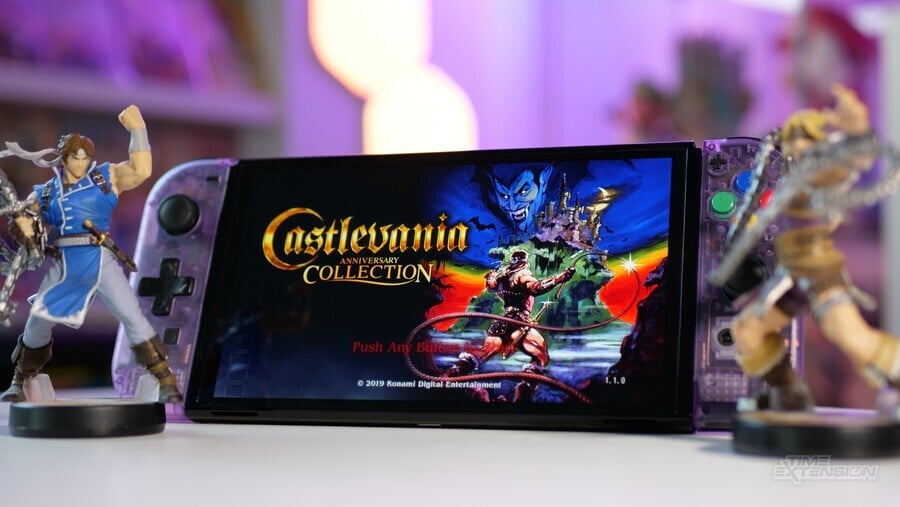
Emulation expert M2 has been involved with many classic gaming projects over the past few decades; its expertise has been instrumental in products like the Mega Drive Mini and PC Engine Mini, and it has worked on the Sega Ages line of games, bringing the likes of Virtua Racing to the home in arcade-perfect form – as well as assisting Konami with its Castlevania, Contra and Arcade Classics collections.
M2's latest venture in the realm of retro is porting Masaya's beloved action title Assault Suit Valken (also known as Cybernator in the west) to the Switch. We were lucky enough to sit down with M2's Development Director Masanori Yagi recently to discuss its focus, and the topic of the Switch naturally came to mind; why has the console been so blessed with vintage gaming experiences over the past six years?
Portable mode is perfect for playing games in a leisurely manner without worrying about time, or just enjoying them in your spare time
"We have ported games to other consoles in addition to the Switch, but I think the Switch is particularly suitable for porting retro games because it can be played in both portable mode and TV mode," replies Yagi. "Portable mode is perfect for playing games in a leisurely manner without worrying about time, or just enjoying them in your spare time.
"On the other hand, TV mode allows you to play on a large screen and with great force, which was not possible at the time. The big advantage is that you can also play arcade games in portrait mode or games that use multiple screens in a way that is close to the way they were played back in the day. Also, retro games don't take up a lot of storage space, so it's fun to be able to swap between them, all in one console."
The wide age range of the Switch audience is also a factor. "We are happy that the games can be played by a wide range of people, from those who play retro games with nostalgia to those who find them fresh," he adds.
Given M2's long history with porting games and creating emulators, it's tempting to ask if M2's working practices have changed over the past few years. "I myself am rather new to M2, so I can't say too much," admits Yagi. "But what I've felt from working and talking to senior staff over the past few years is that we all love games. Of course, a technical foundation is necessary, and we are certainly a group of craftsmen with advanced skills, but the reason why we have acquired them and why we can use them to the fullest is because we want to convey the interesting games we love to the present without losing their appeal.
The driving force to realise these goals is, after all, the affection of games. Without this, nothing will ever get off the ground
"So naturally, we are very particular about reproducibility. However, there is no doubt that retro games inevitably have old systems. It is important to remove this barrier as much as possible by making additions and changes. This is why useful functions and interface improvements are made, so this is an area where the current player's perspective is taken into consideration with care. The driving force to realise these goals is, after all, the affection of games. Without this, nothing will ever get off the ground."
The current boom in retro gaming has ensured that M2 has plenty of work, but classic gaming has become so ever-present, it's almost disingenuous to refer to it as a craze or a fad; it's clearly here to say, and Yagi feels that gaming should be treated like any other medium, and its past should be embraced as readily as its present.
"Games have become more sophisticated in terms of content, quality, volume and complexity with the development of computer technology," he explains. "This has always developed them as cutting-edge entertainment, but I think the time has come that they are seen as 'culture.' For instance, music, novels, films and television were also just entertainment to be consumed at the time they came out, but as time went by, and as they developed and accumulated, they came to be seen as part of culture as a whole, rather than appreciate just the latest thing. Therefore, I think it is important not to dismiss it as a transient boom, as if it were a 'nostalgic hobby of modern people who are tired of games that have become more complex,' but to look at the epochal points in the development of games, evaluate them, and place them in the history." He then adds that "this is only my personal opinion," and not the view of M2 as a whole.





